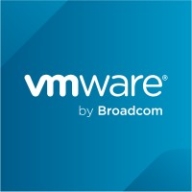

Red Hat OpenShift and Pivotal Cloud Foundry both compete in the cloud platform market. OpenShift seems to have the upper hand due to its comprehensive features and scalability, especially in Kubernetes support and CI/CD integration, despite some customization challenges.
Features: Red Hat OpenShift offers robust Kubernetes support, extensive CI/CD integration, and scalable cloud setups. It excels with certified Red Hat product integrations and scalability options. Pivotal Cloud Foundry is easy to use, excels with Java applications, and integrates well with CI/CD tools for seamless deployment of microservices.
Room for Improvement: Red Hat OpenShift can enhance documentation, autoscaling, and simplify application configurations. It also faces challenges in DNS and Day 2 operations. Pivotal Cloud Foundry could improve by enhancing documentation, adding more security features, and streamlining cluster management.
Ease of Deployment and Customer Service: Red Hat OpenShift is adaptable for on-premises, public, and hybrid clouds, offering strong Red Hat support though response times vary. Pivotal Cloud Foundry provides simplicity and efficiency in deployment and is similarly versatile, benefiting from user-friendly tech support.
Pricing and ROI: Red Hat OpenShift is often considered expensive due to high maintenance costs, but it offers significant ROI through enhanced productivity and resource optimization. Pivotal Cloud Foundry, while costly, especially in private cloud setups, competes well with specific cloud provider pricing. Both provide positive ROI, but OpenShift's extensive functionalities justify its higher price for larger enterprises.
| Product | Market Share (%) |
|---|---|
| Red Hat OpenShift | 11.6% |
| Pivotal Cloud Foundry | 8.9% |
| Other | 79.5% |


| Company Size | Count |
|---|---|
| Small Business | 5 |
| Large Enterprise | 11 |
| Company Size | Count |
|---|---|
| Small Business | 17 |
| Midsize Enterprise | 4 |
| Large Enterprise | 40 |
Pivotal Cloud Foundry (PCF) is the leading enterprise PaaS, powered by Cloud Foundry. PCF provides a cloud-native application platform that allows you to continuously deliver any app to every major private and public cloud with a single platform. PCF is proven to accelerate feature delivery with higher developer productivity and a 200:1 developer to operator ratio. PCF's built-in security and self-healing capabilities reduce risk in your app portfolio while maintaining high-availability at scale to keep customer facing systems online even in the most challenging circumstances. pivotal.io
Red Hat OpenShift offers a robust, scalable platform with strong security and automation, suitable for container orchestration, application deployment, and microservices architecture.
Designed to modernize applications by transitioning from legacy systems to cloud-native environments, Red Hat OpenShift provides powerful CI/CD integration and Kubernetes compatibility. Its security features, multi-cloud support, and source-to-image functionality enhance deployment flexibility. While the GUI offers user-friendly navigation, users benefit from its cloud-agnostic nature and efficient lifecycle management. However, improvements are needed in documentation, configuration complexity, and integration with third-party platforms. Pricing and high resource demands can also be challenging for wider adoption.
What are the key features of Red Hat OpenShift?Red Hat OpenShift is strategically implemented for diverse industries focusing on container orchestration and application modernization. Organizations leverage it for migrating applications to cloud-native environments and managing CI/CD pipelines. Its functionality facilitates efficient resource management and microservices architecture adoption, supporting enterprise-level DevOps practices. Users employ it across cloud and on-premises platforms to drive performance improvements.
We monitor all PaaS Clouds reviews to prevent fraudulent reviews and keep review quality high. We do not post reviews by company employees or direct competitors. We validate each review for authenticity via cross-reference with LinkedIn, and personal follow-up with the reviewer when necessary.